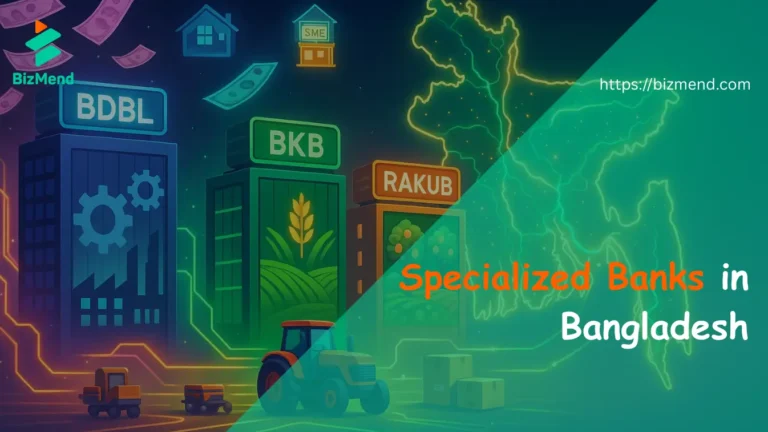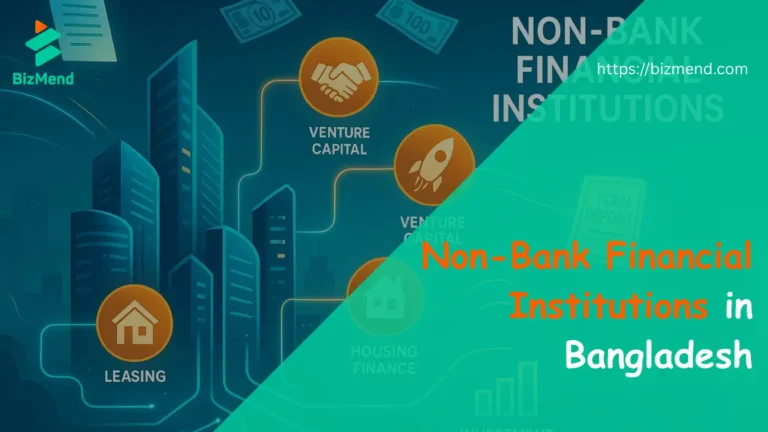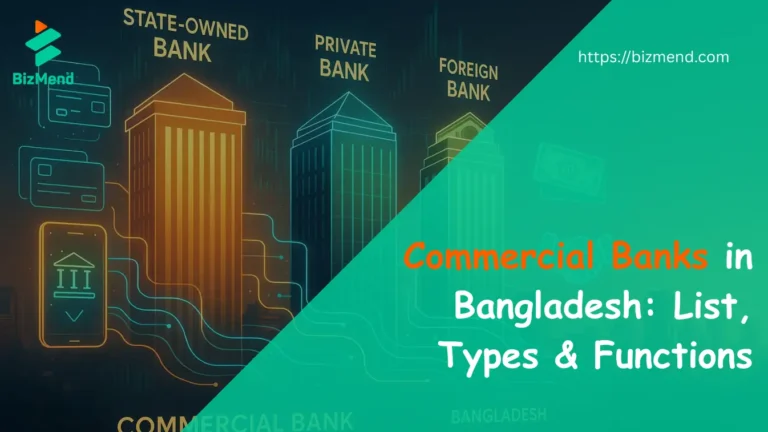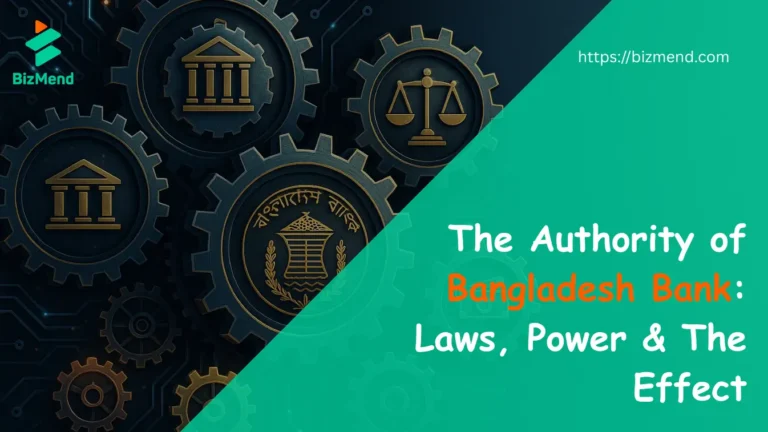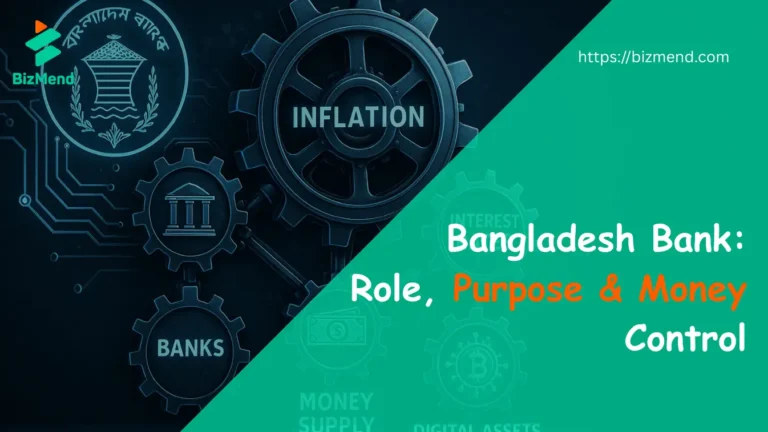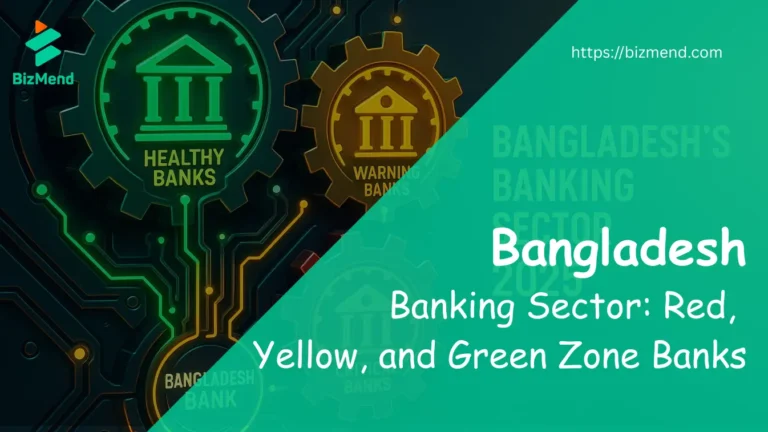“Credit is not just about money. It’s a direct and clear signal that a system trusts your presence.”
When Money Isn’t the Problem—Access Is
You’ve registered your company.
You’ve handled BIDA.
You’ve even opened a business bank account.
But now it’s time for fuel—capital. And this time, the question hits differently:
As a foreign entrepreneur, can I apply for a startup or SME loan in Bangladesh?
The answer isn’t just a yes or no. It’s a maze of conditions, categories, and careful approvals. And if you don’t understand how it all works—or who it’s really designed for—you might end up circling a closed door.
This blog breaks down the real possibilities and limitations, with none of the sugarcoating.
What Qualifies as an SME or Startup in Bangladesh?
Before we even talk about eligibility, you need to know what qualifies as a Small or Medium Enterprise (SME) in Bangladesh. These definitions are used by Bangladesh Bank and shape who the system is built for:
Small Enterprise
- Not a public limited company
- Fixed assets: Tk. 50,000–50,00,000 (excluding land/building)
- Max 25 employees (service or business), 50 in industrial sectors
Medium Enterprise
- Fixed assets: Tk. 50,00,000–20,00,00,000
- Max 50–150 employees (depending on the sector)
Quick Tip: If your venture falls outside these bounds, you may not be eligible under traditional SME loan policies, but other funding routes might still apply.
Can Foreigners Get SME or Startup Loans?
Here’s the straight answer:
No, not through traditional SME loan schemes available to domestic entrepreneurs.
Why?!
Because most of Bangladesh’s SME loan initiatives—including those administered by banks under Bangladesh Bank’s refinance schemes—are designed for citizens or resident-owned companies.
That said, don’t give up just yet!
Let’s look at what options are technically possible and where you might have a better shot.
Your Realistic Options as a Foreign Entrepreneur
- Foreign Loans through BIDA & Bangladesh Bank
- BIDA allows foreign investors to access short-term loans from their parent companies or international sources.
- To do this, you must follow Bangladesh Bank’s Foreign Exchange Regulations and report through the Authorized Dealer (AD) bank.
- You must also obtain No Objection Certificates and file through the Loan Reporting Mechanism under BB’s (Bangladesh Bank) portal.
Heads up: This is the route for inter-company financing, not for small “startup” style loans from local banks.
- Private Bank Loans for Registered Foreign Companies
Some banks may consider giving loans to companies that are:
- 100% foreign-owned but registered in Bangladesh
- Have operational history (i.e., not a fresh startup)
- Can provide adequate collateral and financial records
- May apply under commercial lending, not SME schemes
Banks like Eastern Bank Ltd., Standard Chartered, and DBBL sometimes consider such applications, but on a case-by-case basis.
- Local Director-Based Loan Eligibility
If your Bangladeshi resident director owns shares and qualifies under SME norms, they may apply for a loan in their name for company use.
But this is legally delicate and must be backed by proper shareholder agreements, board resolutions, and BIDA/RJSC transparency.
Warning: Not advised unless you trust the nominee director deeply and have airtight contracts in place.
Special Note on Women and Impact Entrepreneurs
Bangladesh Bank has created special windows for women entrepreneurs and impact-based SMEs, offering:
- Reduced collateral conditions
- Loans up to Tk. 25 lakh
- Refinance support
But these are for citizens—or at best, joint ventures with Bangladeshi participation.
Foreigners don’t qualify for these unless their local partners apply.
Where People Get It Wrong: Common Myths About SME Loans for Foreigners
- “I’ve registered my company, so I’m eligible.”
Not quite. A trade license or incorporation certificate doesn’t guarantee access to loan programs. Loan eligibility depends on sector, ownership structure, residency status, and banking history—not just registration.
- “I’ll apply under the SME category.”
Most SME loan schemes in Bangladesh are designed for locals—individuals or the majority locally owned firms. If your company is fully foreign-owned, that label doesn’t carry much weight.
- “My nominee director can submit the application on our behalf.”
This is where things get murky. Unless your nominee director is a legitimate shareholder with clear rights, using their name to apply for loans can invite compliance risks. It only works if the paperwork does too.
- “Bangladesh Bank gives loans directly.”
Nah-uh. It doesn’t. Bangladesh Bank sets the policy, but actual lending happens through commercial banks. You’ll deal with them—not the Bangladesh Bank—when applying.
Final Thought: Understand the Door Before You Knock
In Bangladesh, being foreign is not a red flag—it’s just not necessarily the correct pass.
Startup and SME loans are primarily built for local entrepreneurs. That’s not discrimination; it’s design.
You’re operating in a system built with different assumptions.
But once you understand those assumptions—and work with the rules, not around them—you’ll find paths that lead forward. Maybe not the SME shortcut, but one that suits your scale and seriousness.
If your venture is solid, structured, and ready, financing is possible.
You only have to look in the right places, at the right time.
FAQ
Can I apply for an SME or startup loan in Bangladesh as a foreigner?
If you’re the sole foreign owner? Probably not.
Most SME and startup loans in Bangladesh are built for local citizens or locally owned businesses. The system’s just not designed for you—and that’s not personal, it’s policy.
So, what financing options do I actually have as a foreign entrepreneur?
You’ve got a few, if you know where to look:
- A foreign loan from your parent company (needs BIDA and Bangladesh Bank clearance).
- A commercial bank loan, if your company is registered here and has a solid track record.
- Or sometimes, a workaround through a Bangladeshi shareholder, if structured carefully.
No shortcuts. But not a dead end either.
Can I use my nominee director to apply for a local loan?
Technically, yes. But legally? It’s delicate.
They’d need to be a shareholder, and everything—from board approvals to loan terms—must be crystal clear and documented. Otherwise, it’s a recipe for internal conflict (and compliance flags).
Are any banks open to lending to foreign-owned companies?
Yes, a few. Banks like Eastern Bank, Standard Chartered, and City Bank might consider it if:
- You’re already operating
- You’ve got revenue coming in
- And you’re offering solid collateral
But you’ll need more than a pitch deck.
Do special loan schemes for women apply to foreign founders?
Only if you’re a Bangladeshi citizen—or you are co-owning the business with one.
The programs are great (lower interest, no collateral up to 25 lakh), but they’re not open to foreigners on paper.
What’s the real reason most foreigners don’t get access?
The loan system in Bangladesh was built to uplift local SMEs, not fund global expansion.
If you’re not local, the system assumes you’re already capitalized—or you’re looking for investor funding, not a small loan.
Are there smarter paths to funding here as a foreigner?
Yes. Joint ventures with locals. Raising capital through overseas partners. Or structured borrowing through international lenders, with BIDA’s green light.
It’s slower, yes. But it’s doable.
Is applying for a local loan as a foreigner even worth the effort?
That depends. If you’re running a stable company with clean books and local ties? Maybe.
If you’re just starting out, no history, and hoping for seed-stage support? Focus on building first. Ask later.






